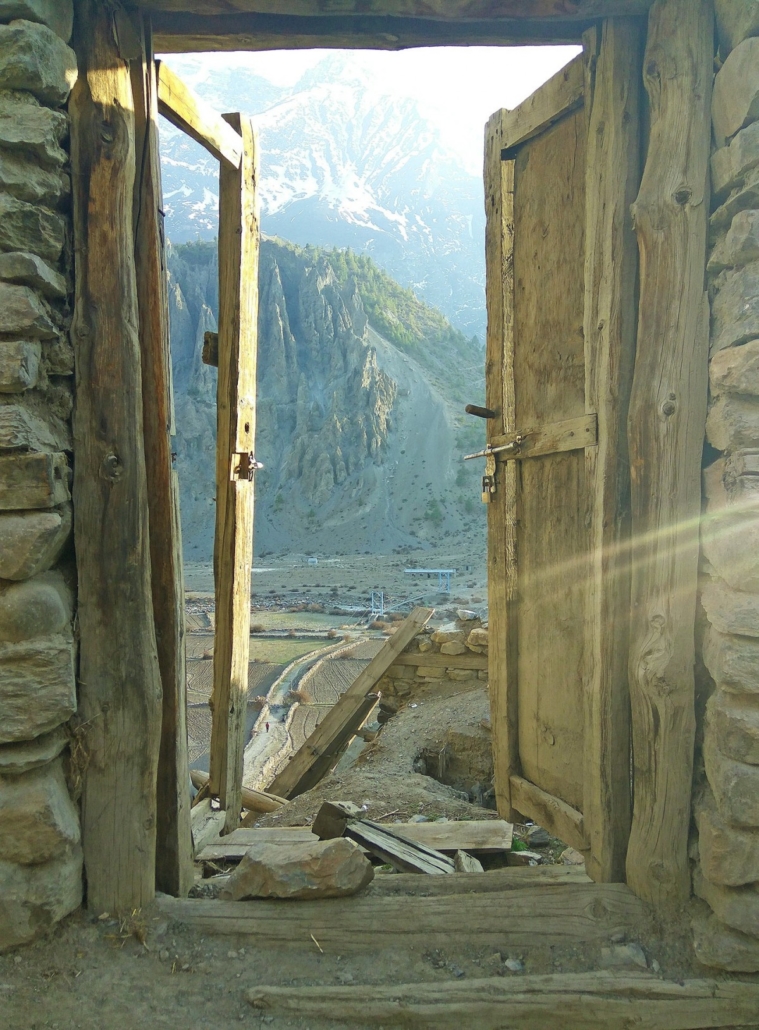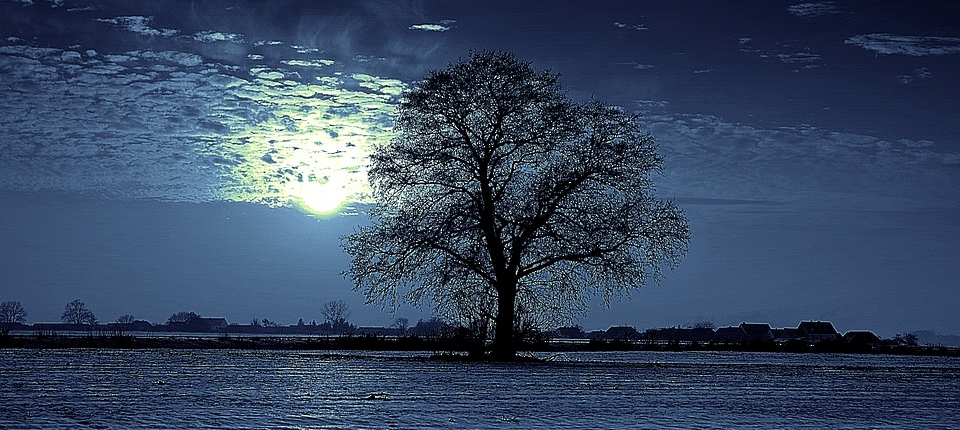 From idealist to lost in the practice of law
From idealist to lost in the practice of law
I set off to the University of California at Berkeley as a budding journalist. What better place, perhaps, than at the home of the Free Speech movement? Along the way, I spent two college summers in Washington, DC, living in Georgetown, and interning in the nation’s capital.
And, by the end of my junior year, while I enjoyed writing and reporting and broadcasting (I was a news reporter for the campus radio station) – I came to realize that a career in law was what was really calling to me. One of my majors was in Political Science, and I knew that I desired an advanced degree and was eager to learn more about Constitutional Law, and in particular the First Amendment.
I headed off to Boston University School of Law, where I had been accepted into their joint JD/MA program in conjunction with B.U.’s School of Broadcasting. Overwhelmed, though, by the high cost of living and at the time even higher interest rates on my law school loans, I made the difficult decision to try to get accepted to another law school in a more affordable town. I ended up transferring to a law school in Sacramento, California where I could save money on rent. And, I was able to apply for and did receive an academic based California Graduate Fellowship to help fund my education. Nonetheless, lacking any proverbial ‘rich uncle’ to assist, I still remained financially challenged. I continued to incur tens of thousands of dollars in student loans.
The topics in law school, though, sometimes thrilled me. I learned even more about the First Amendment, including artists’ rights and other constitutionally protected forms of expression. I was ‘in the zone,’ thinking I could advocate on behalf of principles that I truly felt passionate about.
 If you knew me back then, you would have called me an idealist. I was also, though, a pragmatist. I couldn’t end up helping anyone if I couldn’t afford to complete my law school education and pay off my law school debt. Accordingly, I found myself “chasing the almighty dollar.”
If you knew me back then, you would have called me an idealist. I was also, though, a pragmatist. I couldn’t end up helping anyone if I couldn’t afford to complete my law school education and pay off my law school debt. Accordingly, I found myself “chasing the almighty dollar.”
I went into what attorneys refer to as “big law,” by taking a job as an associate at a 100-lawyer civil litigation defense firm. Unlike the plaintiffs’ side, on the defense side, your “worth” is measured in terms of billable hours. Our time was broken down into one-tenths of an hour. Each morning, I arrived at the office with tabula rasa – a blank time sheet to be filled out. It didn’t matter how many hours I had billed the day before. Each day, I was expected to prove my value to the firm, by racking up another 10-12 hours for that day, and so on, and so on.
 We represented large corporations, mostly with regard to breach of contract disputes. Why did I end up at a large firm, doing something pretty much polar opposite to what I really wanted to do? In a nutshell: Because it paid well.
We represented large corporations, mostly with regard to breach of contract disputes. Why did I end up at a large firm, doing something pretty much polar opposite to what I really wanted to do? In a nutshell: Because it paid well.
My first year as an associate, I brought in a salary that surpassed any dollar amount that my parents ever made. I bought my first-ever and only “brand new car,” right off the lot, with only four miles on it. The firm had a courtroom built right into the center of one of the two floors we occupied in a Century City high rise. It had its own jury box, and two-way mirrors, and we were provided acting classes where we could hone our trial advocacy presence and skills.
Admittedly, at times it was kind of intoxicating. Parts of it did feed my ego as well as my pocketbook. That feeling dissipated, though, within a short period of time. While grateful that I had landed a well-paying job, I became increasingly disenchanted with the practice of law.
Whatever work that I didn’t complete before I left the office at 7 pm, I often finished back at my apartment, sometimes up to 1 o’clock in the morning before needing to rise a few short hours later and beat rush hour traffic downtown to appear at the courthouse in time for an 8:30 am court appearance.
My energy, my enthusiasm, and my eager idealism – the very zeal I initially brought to the practice of law – was waning, and waning fast. Where did I go astray? The money’s nice, I kept telling myself, but I also kept thinking that “this can’t be all there is”? Like a line from that Talking Heads song, I kept saying to myself, “How did I get here?” This was not my beautiful life; not really.
What was unclear then, and has become readily apparent to me now, is that I was so focused on paying off my law school debt, that I was paying a steep price of a different kind: I was paying with my sense of purpose, my spirit, my health, and my overall joie de vivre.
Feeling as if my life had been reduced to six-minute increments, even standing in a post office line seemed stressful. “I could be billing my time, instead of standing here,” I found myself thinking. Day to day errands had become a source of dissonance and tension.
And the work that I was doing wasn’t fulfilling. While everyone deserves zealous representation, and I maintained my dedication to doing quality work for our corporate clients, my heart wasn’t in it. Instead of fighting the good fight to protect journalists, artists, and others deserving of First Amendment protections, I was drowning in the minutiae of whether certain conduct or conditions were considered breaches of contracts, and whether they would withstand judicial scrutiny.
And I was doing so in largely male governing, patriarchal law firm environments, where there were few women partners and no women serving as managing partners. There was no attention paid to bringing anything remotely akin to a “holistic” approach to running the firm or the practice of law.
While my brain and analytical abilities were put to good use, my consciousness, like a faucet, was shut off. All in pursuit of a paycheck.
Then even the paychecks stopped. That firm ended up going bankrupt. I was one of the few high-billing associates that survived the firm’s earlier lay-offs so that I could help keep the boat afloat. One fateful Friday, the office manager came into each attorney’s office, one-by-one, and let us know that even though our paychecks had been issued – it would do no good to cash them, as they would bounce. The bank had cut off the firm’s credit line, and there was no chance of a rebound. Stunned, and angry, I soon also felt the sting of having to look for another job.
Ever in pursuit of an income to keep my debt from swallowing me whole, I took a job at another, smaller, law firm across town where another attorney friend of mine had headed. I left that firm within a year. That firm had all kinds of partner in-fighting. And, among other things, this is the firm where one of the paralegals one day brought me into his office to show me the handgun, stashed away in his briefcase, that he’d been bringing with him into the office. The firm later fired him. Throughout, I was billing out at a rate of 2,400 hours/year. Walking into the office, on most mornings, I couldn’t even make it from the front desk to my office down the hall without someone at the firm needing to tell me about the latest shenanigans going on “behind the scenes.” I couldn’t stand it any longer. Practicing law was stressful enough, let alone working in such a turbulent and toxic environment.
One morning, after spending those middle-of-the-night hours breaking down in an emotional heap on the front steps of my local Catholic church (one of those dark nights of the soul, for sure) – I decided to give my two weeks’ notice, and to the shock of the male partners there, set out to find a more promising work environment. I ended up leaving the practice of law, and never went back.
That was a couple decades ago now, and I’ve since paved my own way through a creative career path that I’ve carved out for myself, and while not always quite as lucrative, has definitely been more fulfilling.
Upon leaving the practice of law, it was about at that same time that I started to revisit and deepen my spiritual practice. And, recently, through expert guidance and tuning into my own intuition, I’m now discovering that I am fully committed to helping other women attorneys stay in the practice of law.
 What if, yes, what if I had the type of heart centered support from other women attorneys, mentors and role models available to me now, back then, so that: I didn’t feel so alone; didn’t feel so dismissed for my ‘feminine qualities’; I was valued for more than purely the number of hours I billed; and I was able to cultivate a culture that not only helped transform “big law” firm environments – but in doing so ultimately created more meaningful, heartfelt environments and results for litigants, too?
What if, yes, what if I had the type of heart centered support from other women attorneys, mentors and role models available to me now, back then, so that: I didn’t feel so alone; didn’t feel so dismissed for my ‘feminine qualities’; I was valued for more than purely the number of hours I billed; and I was able to cultivate a culture that not only helped transform “big law” firm environments – but in doing so ultimately created more meaningful, heartfelt environments and results for litigants, too?
As a bit of an aside (yet, it’s relevant here!): Little known fact about me – I’ve coordinated and participated in the painting of murals on walls of buildings all over Southern California. One of the murals that I helped design and paint was a children’s mural in a room down the hall from the Family Law department in one of the local Superior Courthouses. Our purpose was to create a welcoming environment for the children to have as a safe waiting room and play area, when their parents (and sometimes themselves) were scheduled to appear in court. Now, THAT was fulfilling. My heart swelled with every paint stroke as I brought fun pictures of farm animals and cute meadow scenes to life on those walls.
As I write this, I’m remembering and recapturing that which is the true essence of me. As I continue to listen closely to what my soul is calling me to embody next, I pledge to keep stepping forward to help serve those whom I’m most meant to serve.
Stay tuned! I’m heading off to a remote setting, and will be “off the grid” for a vitality retreat led by one of my trusted spiritual advisors. I’ll be taking several days to discern and envision what the “whole”-istic approach to law may look like. And, I’m designing a program to help women lawyers do exactly that.
My idealism is back, front and center. I look forward to bringing it, and my new programs, to you!
Okay, your turn:
Where or when has your life path taken a sudden or surprising turn? What would you like to do differently going forward, given what you know now, that you didn’t know then?
I invite you to share your thoughts, feelings, and experiences by leaving a Reply in the Comments section, below. Soul-to-soul!
© 2017 Lori A. Noonan. All Rights Reserved.






 All that pulling myself up by my own boot straps, however, did take its toll. It took me years of life living and deep spiritual growth to excavate and repair the broken threads of mistrust and to allow others to support me in healthy ways. It took me awhile to get out of survival mode and into thriving mode in a way that invited others in to help shoulder the load. Even now, sometimes the heaviness of ‘decision fatigue’ threatens to pull me down into the depths of metaphoric quick sand.
All that pulling myself up by my own boot straps, however, did take its toll. It took me years of life living and deep spiritual growth to excavate and repair the broken threads of mistrust and to allow others to support me in healthy ways. It took me awhile to get out of survival mode and into thriving mode in a way that invited others in to help shoulder the load. Even now, sometimes the heaviness of ‘decision fatigue’ threatens to pull me down into the depths of metaphoric quick sand.


 From idealist to lost in the practice of law
From idealist to lost in the practice of law If you knew me back then, you would have called me an idealist. I was also, though, a pragmatist. I couldn’t end up helping anyone if I couldn’t afford to complete my law school education and pay off my law school debt. Accordingly, I found myself “chasing the almighty dollar.”
If you knew me back then, you would have called me an idealist. I was also, though, a pragmatist. I couldn’t end up helping anyone if I couldn’t afford to complete my law school education and pay off my law school debt. Accordingly, I found myself “chasing the almighty dollar.” We represented large corporations, mostly with regard to breach of contract disputes. Why did I end up at a large firm, doing something pretty much polar opposite to what I really wanted to do? In a nutshell: Because it paid well.
We represented large corporations, mostly with regard to breach of contract disputes. Why did I end up at a large firm, doing something pretty much polar opposite to what I really wanted to do? In a nutshell: Because it paid well. What if, yes, what if I had the type of heart centered support from other women attorneys, mentors and role models available to me now, back then, so that: I didn’t feel so alone; didn’t feel so dismissed for my ‘feminine qualities’; I was valued for more than purely the number of hours I billed; and I was able to cultivate a culture that not only helped transform “big law” firm environments – but in doing so ultimately created more meaningful, heartfelt environments and results for litigants, too?
What if, yes, what if I had the type of heart centered support from other women attorneys, mentors and role models available to me now, back then, so that: I didn’t feel so alone; didn’t feel so dismissed for my ‘feminine qualities’; I was valued for more than purely the number of hours I billed; and I was able to cultivate a culture that not only helped transform “big law” firm environments – but in doing so ultimately created more meaningful, heartfelt environments and results for litigants, too?